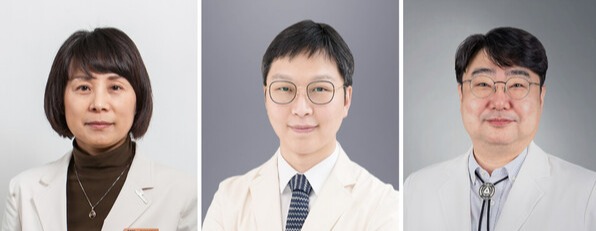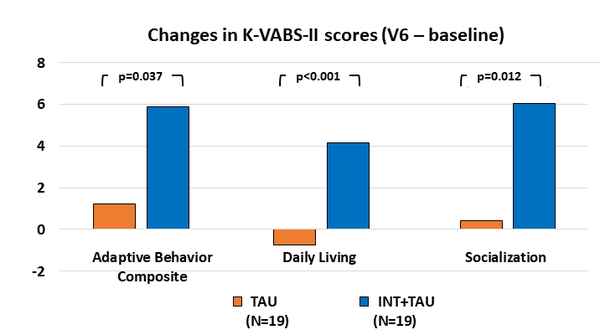A mobile game-based digital therapy has been shown to help improve social skills in adolescents with autism spectrum disorder (ASD).
A collaborative research team found that a social skills training program based on a mobile game helped improve social skills in adolescents with autism spectrum disorder.
The team was led by Professor Joung Yoo-sook of the Department of Psychiatry at Samsung Medical Center, Professor Yoo Jae-hyun of the Department of Psychiatry at the Catholic University of Korea Seoul St. Mary's Hospital, and Professor Choi Tae-young of the Department of Psychiatry at Catholic University of Daegu Medical Center.

The researchers recruited 38 adolescents aged 10 to 18 years diagnosed with ASD or social communication disorder (SCD) from Samsung Medical Center, Catholic University of Daegu Medical Center, and the Catholic University of Korea Seoul St. Mary's Hospital between August and November 2023.
All participants were classified as mild on the ASD severity scale and were able to follow the training program on their smartphones, either alone or with the help of a caregiver.
The mobile game-based training program used NDTx-01, developed by New Dive, to improve communication and interaction for children and adolescents with ASD and SCD. In January, the Ministry of Food and Drug Safety designated NDTx-01 as an innovative medical device.
NDTx-01 is designed to present a variety of situations commonly encountered in schools and requires users to solve problems by performing missions.
The researchers randomly divided the participants into a conventional treatment group (19 participants) and a mobile game intervention group (19 participants). They observed how the participants' social adaptive skills, including social communication and interaction skills, changed after six weeks, depending on the treatment. The conventional treatment included medication, psychotherapy, and social skills training.
The results showed that the mobile game intervention group improved their social skills, such as social adaptation and daily living skills.

According to the researchers, the Adaptive Behavior Composite, a measure of communication, life skills, social skills, and motor skills, showed a 5.89-point improvement in the mobile game intervention group, compared to a 1.21-point improvement in the conventional treatment group.
In socialization, the mobile game intervention group increased by 6.05 points, compared to 0.42 points in the traditional treatment group. In particular, when assessing daily living skills, the conventional treatment group scored 0.74 points lower than at the beginning of the treatment, but the mobile game intervention group scored 4.16 points higher.
In addition, repetitive behaviors and interests, which are key characteristics of ASD, showed a significant difference in the mobile game combination treatment group (9.11 points) compared to the conventional treatment group (2.89 points).
"The treatment using smartphones can be carried out at home under the guidance of medical staff, which makes it more accessible and immersive based on the interest in the game itself, which can be seen as an increase in the treatment effect. It can also be more useful when continuous face-to-face therapy is difficult," Professor Joung said.
The study was supported by the Healthcare Technology R&D Program of the Korea Health Industry Development Institute (KHIDI) under the Ministry of Health and Welfare and the Daegu-Gyeongbuk Advanced Medical Industry Promotion Foundation.
It was published in the latest issue of the Journal of Psychiatry and Clinical Neurosciences in Japan.
Related articles
- Alcohol misuse and mental illness share genetic roots, study finds
- Yonsei, SNU launch ₩9.2 bil. project to develop AI device for early autism screening
- Severance Hospital, KASEC partner to support individuals with developmental disabilities in Korea, US
- SNUBH study reveals gender-specific genetic factors of autism among Koreans
- Koreans' genetic variants associated with autism spectrum disorder identified for 1st time
- Gut microbiome types decide autism spectrum’s severity
- Emocog brings DTx for mild cognitive impairment to clinical stage: CEO
- AI-powered smartphone app shows 94% accuracy in early autism screening
- Korea to invest $652 million for 7 years into cutting-edge medical device R&D

